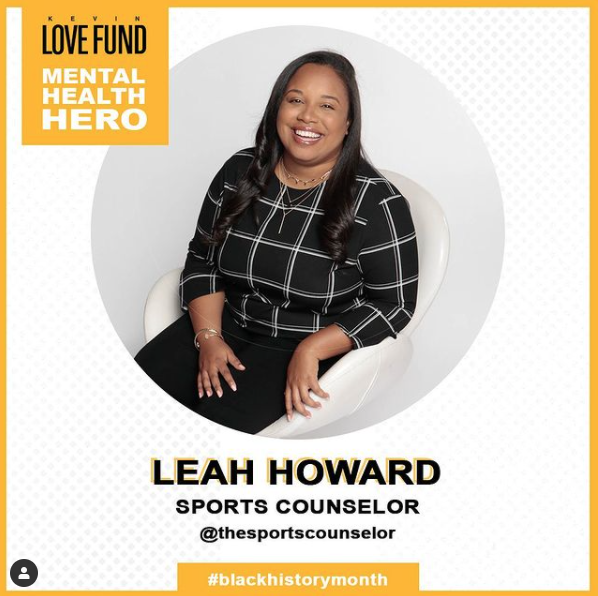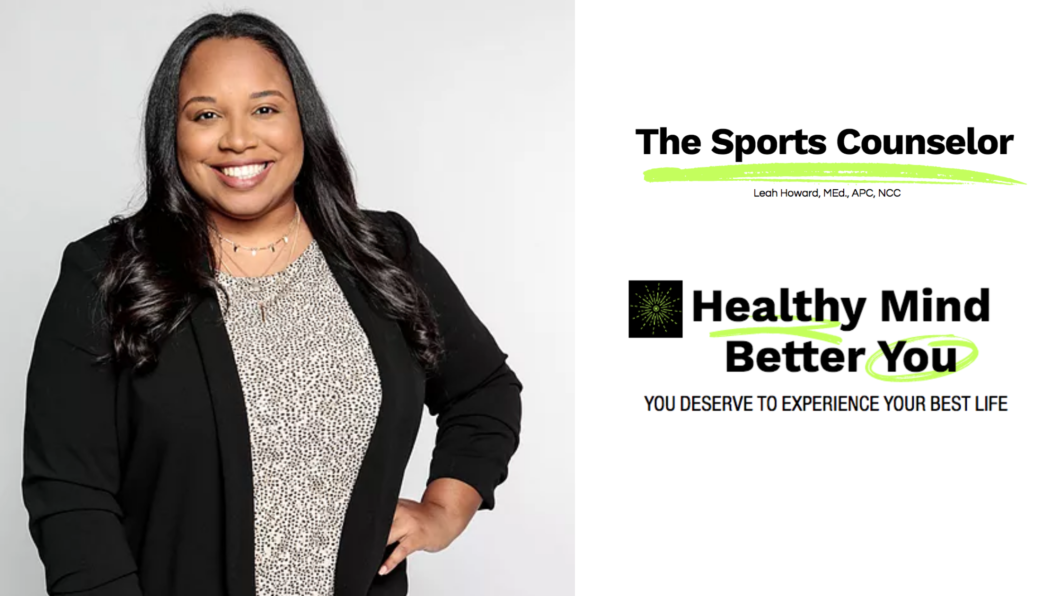Written by Leah L. Howard, M.Ed., APC, NCC, The Sports Counselor
It is inevitable that the day will come when a competitive athlete suits up for their final game. It seems like now more than ever conversations about “life after sports” or “life beyond the ball” are being had with athletes at all playing levels. This dialogue has been promoted in the form of books, movies, seminars, career coaching and more. The ultimate goal of these conversations is to encourage athletes to explore their interests outside of the game so that they do not feel left without a purpose once the majority of the competitions have ended. Sometimes the “life after sports” conversations can happen prematurely before the athletes are ready to receive the message. Timing and delivery are major factors that can impact the effectiveness of the message. This article will provide some action items to consider in order to have a healthy dialogue with the athletes on the receiving end of the “life beyond the ball” conversation.
1. Consider the athlete as a whole person
Allow the athletes to develop their own definition of what success looks like for them. There is no perfect way to be prepared to retire from sports. Many people who engage in competitive activities can have very black and white thinking patterns. Athletes are trained to see value in numbers, i.e., score points, numbers on the scale, height, speed, hours in the gym, breaking record numbers, position on the team. This mindset can lead to very concrete thinking patterns and it can be difficult for athletes to see their value beyond their numbers. This means it is very common for athletes to place their value and idea of success on external accomplishments rather than internal happiness. As a facilitator, it is important not to assume to know what is best for the athletes without taking the time to get to know them as a people. Humanize the experience by having a two-way dialogue about their interests rather than a one-sided conversation
2. Meet the athlete where they are and be present
Depending on an athlete’s career goals and how far they plan to take their athletic career, which could be on a professional level, they may not be open to the idea of considering a backup plan. Elite athletes give so much focus to their sport it can consume a large part of their lives. It can be difficult for them to see themselves doing anything beyond what they love within their sport. Conversations about life after retirement from sports doesn’t always allow room for the athlete to focus on who they are becoming in the present moment. Ask the athlete what do you need/what are you hoping to get from the conversation. How can I best help you at this time? And, based on your daily habits do you like who you are becoming as a person? It is also a good idea if you are giving a presentation to a large group of athletes to plan to receive feedback at the conclusion of the segment. It is suggested to consider the age of the athletes and where they may be developmentally. Everyone’s journey is different. It’s important to allow room for the athletes to have autonomy when it comes to the decision making process about their future.
3. Include narratives in the discussion
Narratives are a great way to provide suggestions and solutions to athletes about life after sports. Including stories or videos about former athletes of all ages and genders is a way to include relatable narratives into the discussion. It can be helpful when athletes can see someone else that was once in their shoes as a real life example. This gets the athletes thinking about their futures in ways they may not have considered before and can leave a lasting impression. It is okay to include a mixture of athletes that made some wise and some not so wise decisions. Facilitate a dialogue that can highlight the transition process and then it individualize to the athletes that are engaged in the conversation.
Conversations about life after sports are very meaningful. It’s important that those facilitating the dialogue approach the topic with care and consideration to who the athletes are in the present moment. When encouraged to explore who they are as people AND athletes it can make the “life after sports” conversations more palatable and effective.

Leah Howard is a trailblazer in the counseling profession who is changing the way athletes and others prioritize their mental health. She works to create an environment of clarity and stability for people looking to experience a transformative process by way of therapy. She is a Board Certified Associate Professional Counselor based in the Atlanta area. Among her numerous accolades, in 2021 she was recognized by the Kevin Love Fund as a 2021 KLF Mental Health Hero. Click here to learn more about the incredible work that Leah is doing.

